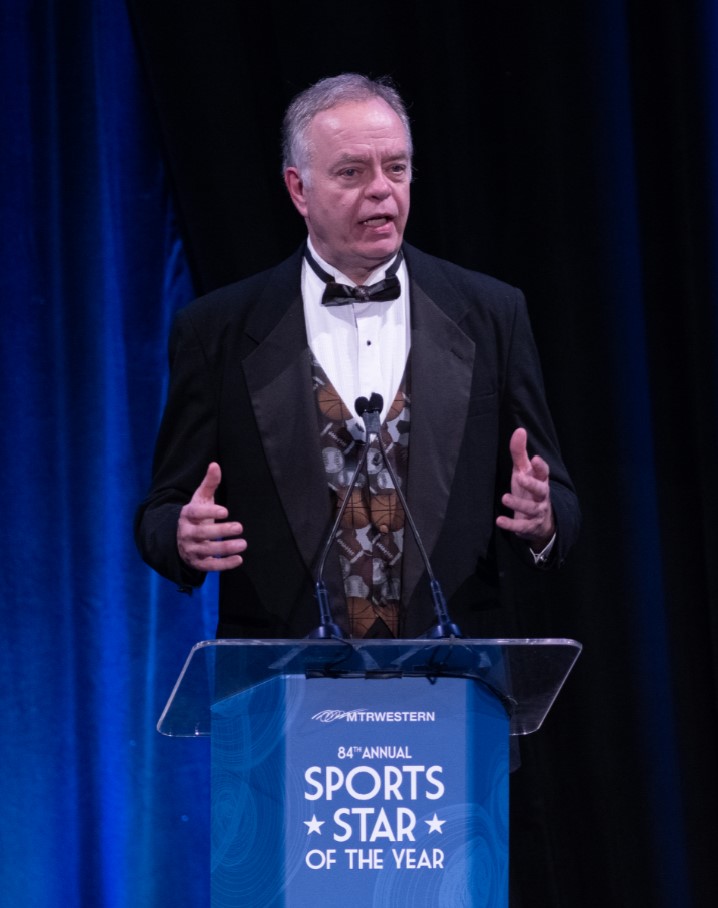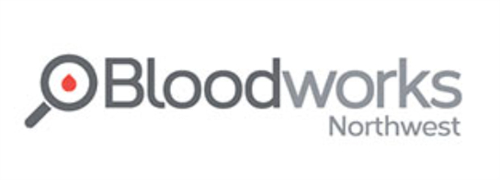
President Jimmy calls the meeting to order promptly at 12:30 p.m. followed by the song of the day, “You Are My Sunshine’ led by Trish Bostrom accompanied by her banjo, and the day’s inspiration by Tom Mesaros.
The day’s short program featured Downtown Seattle Association President/CEO and fellow Rotarian Jon Scholes, who provided an overview of the ‘state of downtown’. He began by thanking Rotary for meeting twice monthly downtown at the Westin, as a vital piece of the renewal and recovery of downtown. “We have turned a corner beginning with a $15M plan to revitalize downtown with additional beautification and events to draw people to the center city,” he said. For information about the DSA’s collaboration with the City of Seattle, Visit Seattle, and private organizations visit www.loveseatown.com. He reported some encouraging information: 87% of visitor foot traffic has returned compared to a normal week; hotel occupancy is at 70% and more people moving into downtown than ever before. “There is still plenty of work to do,” he said, “including pivotal elections that everyone should get educated about including the Compassion Seattle charter amendment to help folks on the street get back on their feet”.
Seattle Sports Commission president and Seattle #4 president-elect nominee Beth Knox introduced the day’s featured speaker, Art Thiel, a respected local sports reporter/columnist who spoke about the impact of student athletes’ compensation and the reckoning of big-time college sports. Between the soccer festival, Seahawks pre-season, the Mariners being relevant, the Storm’s great win along with the Kraken launching has kept the veteran sports reporter busy.
“For more than 100 years the business of college sports has been the golden goose of the NCAA grip on amateurism,” he began. “It is all happening this summer as college football and men’s basketball have taken such a precedent over colleges and universities, where misplaced priorities have taken over college sports following recent rulings and Legislation that provide name, image, and likeness (NIL), the term to describe reforms that are shaking college sports”.
He took us on a walk down memory lane beginning with the Olympic games that were organized in 776 B.C. where organized sports became a break for wars. Fast forward to 393 A.D. where athletes were awarded prizes for athletic competitions. Then on to 19th century England where the industrial age had taken a toll on fitness among ‘royals’ and when the ‘working class’ began to win prizes – they stopped giving them and enter the term amateurism.
Fast forward to 1908 when colleges/universities started making money from spectators and eventually millions from TV revenues. It seemed like everyone in college sports was making money except the athletes. “NCAA has been losing a series of court decisions that say they can’t restrict the earning power in an industry (college sports) that has exploded,” he said. Court rulings and legislative action have ruled how schools cannot deny a group of athletes from making money.
This year things got more complicated when state legislatures learned that the NCAA was not being fair with the administration of this change. Other states then adopted measures from preventing schools from earning outside money or money other than the athletic department or businesses who want to use the athletes for promotional endorsements, events, and on social media. “The rulings allow athletes to capitalize on their followings by charging for visits and appearances,” he said. Over 20 state Legislatures developed their own rules for athlete compensation and how it would be administered. He said the UW, for example, has 23 varsity sports that are all paid for by revenues from the football team, and the athletic department is paid by private donations. The net effect may be some schools not being able to afford to field a football team. WSU and others are not funded by fan and TV revenues, so they can’t continue without funding from the general fund which is limited.
The ‘Name, Image and Likeness’ (NIL) issue will only add to the problem as universities have created advocates to help players organize their endorsements. “It has created the ‘wild west’ in college sports as it allows businesses who may not have had an ability to tap the college markets, can now tap other athletes and types of athletic programs,” he said. “There’s no accountability for this approach except what the school or athlete wants to share. These agreements are not publicly disclosed”. The disparity could be significant as paid endorsements and social influence campaigns could become a recruiting device by drawing players away from their current schools to create a huge competitive battle. There is no legal or ethical prohibition for paid internships and other forms of compensation.
“Women athletes will finally have access to endorsements and compensation that have historically come from schools,” he concluded. “A greater distribution of outside money to a lot of athletes and that’s a good thing but will have an impact on smaller schools that won’t be able to stay in football”. Art offered that these rulings are a radical realignment of college sports, reducing the NCAA’s control over the game to ground rules, with the conferences becoming the de facto leaders…or he speculated how even their diminished influence could result in an overall umbrella organization like the NFL.
The new paradigm in college sports will change the game as 100% of the compensation goes to the athletes as universities must spend money to help the athletes traverse the new rule. “It is the wild west as the rules can be circumvented,” Art says, “by having a company getting commercial benefit from a player”.
Joe Phillips chair of the new member introduction committee introduced our newest member, Yvonne Richards, who is director of the Tutoring Center, a nationwide one-on-one K-12 tutoring service organization. Welcome Yvonne.
Ben Wicks then described how the leadership of the club is selected and how it works. Leadership includes the board of directors, trustees for the service foundations, and club officer positions. Board positions are three-year terms. Officer positions are one-year terms and selected by the incoming president. The election will be held at the first regular meeting in the month of December, nominations will be announced two weeks in advance. All nominations are needed by October 25. Submit to Jeff Parker, governance chair, or Caroline.

